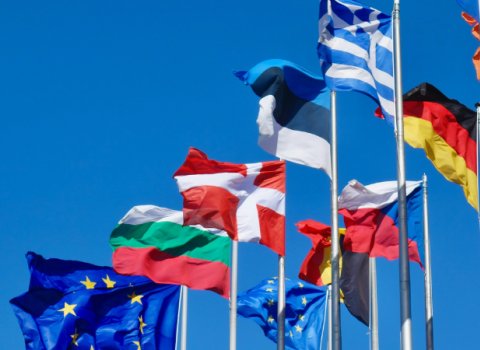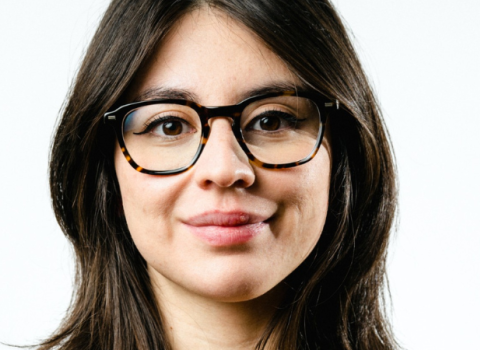Plans to scrap a little-used law that gives Italian academics ownership of intellectual property are on hold, pending a decision from a new government. But the case for reform remains strong.

Italy is about to end a 20-year experiment with ‘professor’s privilege’, a rule that gives academics rather than universities ownership of any patents they create. While the rule is very rarely followed, the reform is an opportunity to modernise and streamline technology transfer in the country’s universities. If, that is, the incoming Italian government decides to pick up an initiative begun by its predecessor.
Professor’s privilege was introduced in Italy in 2001, as a response to a perceived inability of universities and other public research institutions to derive value from intellectual property (IP) they created. But introducing this law went against the tide in a number of ways.
First, Italian public research institutions were just beginning to develop a more professional approach to managing IP and setting up technology transfer offices. “A rule that said you don’t own the IP any more, it belongs to professors came as something of a cold shower,” said Massimiliano Granieri, professor of law at the University of Brescia, and a board member of Netval, Italy’s network for the enhancement of university research.
Netval was founded as an informal network between universities in 2002, in direct response to the complications caused by the professor’s privilege law. It has since grown into a large professional association devoted to technology transfer in public research institutions.
Second, the introduction of professor’s privilege in Italy ran against the international trend, with countries such as Germany, Austria, Denmark and Norway all scrapping similar measures around the same time, in order to leave intellectual property in the more capable hands of institutions. The only other European nation to stick with professor’s privilege is Sweden.
Finally, the introduction of professor’s privilege ran counter to the influential Bayh-Dole Act in the US, which leaves the results of publicly funded research to institutions rather than researchers, and obliges them to protect and take steps to exploit it. Long held up as a standard to which Europe should aspire, most nations have moved to follow its example to a greater or lesser degree.
No love lost
Italy’s love affair with professor’s privilege was short-lived. The arrangement was unpopular with universities and professors alike, with most academics unwilling to shoulder the responsibility or the costs of managing patents. Most with IP to protect and exploit chose to collaborate with the technology transfer offices of their institutions.
In 2005, the law was amended, exempting any research funded or co-funded by an external body. In these cases, the institution would own the research outputs. This covers EU research funding and, paradoxically, funding from the Italian government. Companies sponsoring research must make an arrangement with the institution so that they own the results. “This was a significant carve-out, and professor’s privilege became a residual application when the research is self-funded by the institution itself,” Granieri said.
At the present time, the use of professor’s privilege appears to be vanishingly small. “In our university, the number of professors who have kept ownership of patents for themselves is very limited,” said Marco Pierini, vice president for technology transfer and community engagement at the University of Florence. “In most cases, they prefer to pass it to the university, where we have an office that looks after IP and supports them in further commercialisation.”
The vast majority of patents generated at the University of Bologna are the result of formal research contracts or agreements, which assign ownership of IP to the institution or sponsor. “There is only a negligible chance that a professor might have a patentable idea outside of these activities.” said Claudio Melchiorri, vice rector for industrial research.
In most areas of technology independent, individual research is practically impossible. “I work in robotics, for example, so if I have an idea I have to go to my lab to verify if it is good or not, and in doing that I have to recognise that it’s not really my lab, it’s the university’s lab, and so they will have something to say about that idea,” Melchiorri said.
Changing the law on professor’s privilege therefore simply reflects the reality on the ground. “The transition will be very soft, with very little difference before and after,” said Melchiorri.
Pierini agrees. “It’s a privilege, and when people lose a privilege, they tend not to be happy, but that is just in principle,” he said. “In reality, I don’t think there will be much difference.”
Reform still needed
Although Italy has learned to work around professor’s privilege, a legal reform that removes it is desirable for a number of reasons. “The provision is poorly written, and still causes a number of interpretive hurdles,” said Granieri. “It also doesn’t leave much freedom to universities, within a rule of institutional ownership, to organise internal relationships with researchers.”
The privilege only applies to professors, leaving out all of the other members of the academic community, from students and PhDs to post-docs and visiting academics, who might generate intellectual property. “The legislation does not provide an answer for all these situations, which is good, but it doesn’t even give universities the power or opportunity to create a framework for this internally,” Granieri said.
What Netval would like to see strict institutional ownership, as in the proposed legisalation. “So, any IP generated within the walls of the university belongs to the university. Then universities are free to regulate their relationships with inventors, in terms of rewards, and with industry, in terms of licensing and assignment schemes in sponsored research,” said Granieri.
Being in line with international partners would also be a benefit. “Especially for research developed with international colleagues it is always tricky to find agreements for the management of the IP produced,” Pierini said. “Once we have similar rules to our partners, that will help relationships with universities and industry in other countries.”
Career development
While scrapping professor’s privilege in favour of institutional ownership would be a step forward, there is scope to go further. One significant hurdle is that generating IP does not contribute very much to academic career development in Italy.
“So, we need to have other arguments to make sure colleagues keep going in this direction, and the economic arguments are important,” said Pierini. That is something that the university is considering internally, but it also requires attention at a national level. “We need to change our assessment of professors, to give more importance to the third mission, and IP is an important part of that.”
Another issue is that professor’s privilege, and the proposed reform, both focus on patents, without taking into account other forms of intellectual property, such as software, designs and plant varieties, not well-served by the patenting system. “We would like to see a legal reform that takes a comprehensive view of the results that universities and public research institutions generate, to allow them to be valorised,” said Granieri.
A more important legal barrier is that universities are forced to apply rules for public procurement when dealing with intellectual property. “Technically, that is a mistake, because when you out license a patent, you are not purchasing toilet paper for your office,” Granieri said. “The nature of the transaction is different, the money flows in a different direction, and the subject matter of the transaction is different. And the rules that we have for public procurement are just unfit for the valorisation of intellectual property.”
For example, public procurement rules may require the disclosure of information that needs to be kept secret to protect intellectual property, or demand a price be set when licensing will involve royalty payments.
Granieri admits that changing this situation would be complicated: universities are public institutions, and areas would have to be carefully designed where the usual rules did not apply. “It would be technically difficult to achieve, but not impossible, and it would be extremely useful for technology transfer offices.”
Elsewhere in the Ecosystem…
- Angel investment in Europe grew by 90% between 2020 and 2021, according to the latest statistics from EBAN, the European trade association for business angels, seed funds and early stage market players. Declared investments rose from €767 million in 2020 to a record €1,456 million in 2021. There were 5,070 disclosed funding rounds, consisting of both initial investments and follow-on investments in Europe-based start-ups. Reports provided by national federations, local angel networks, and national venture capital associations suggest there are approximately 39,400 active business angel investors on the European continent. Meanwhile, EBAN has published a Manifesto for a gender balanced angel investing ecosystem, and committed to reach 30% women network members by 2030.
- The European Investment Bank has approved a €15 million loan to Spindiag, a German start-up developing a PCR-based diagnostic platform for SARS-CoV-2 and other major infectious pathogens, to be used in hospitals and other healthcare facilities. The money will be used for research, scaling-up of production and expanding from Germany into other European markets. Spindiag was founded in 2016 as a spin-off from non-profit research association Hahn-Schickard and the University of Freiburg.
- Anna Vanderbruggen of Erzlabor, a spin-off company from the Helmholtz Institute Freiberg for Resource Technology, has won the 2022 Change Award, given by the European Institute of Innovation and Technology (EIT). The award, for graduates of EIT entrepreneurial education programmes, recognised her development of a method that extracts graphite from lithium-ion batteries, opening up new possibilities for recycling. Other EIT Awards for 2022 included the Innovators Award, for Bernhard Adler of Austrian start-up Ecop Technologies, and the Venture Award, which went to Christoph Berger of Vilisto in Germany. The Women Leadership Award went to Catherine Schreiber, chief executive of Advitos, also in Germany.





 A unique international forum for public research organisations and companies to connect their external engagement with strategic interests around their R&D system.
A unique international forum for public research organisations and companies to connect their external engagement with strategic interests around their R&D system.